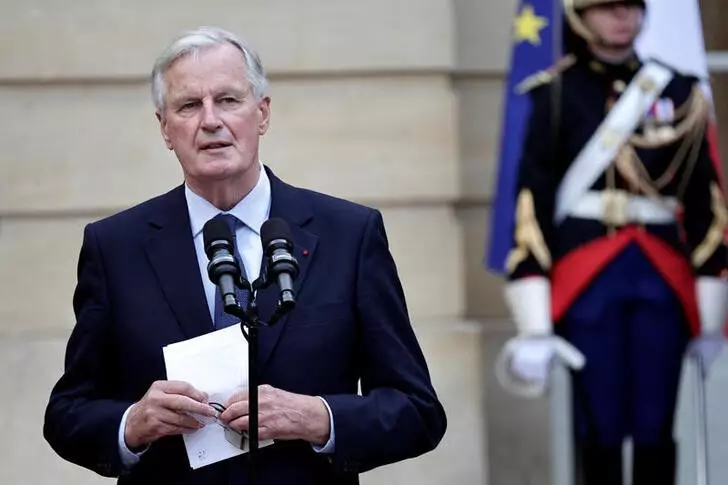French Prime Minister Michel Barnier, a seasoned conservative politician who previously made a name for himself negotiating Brexit, now faces the challenging task of leading a country divided by deep political fault lines. This comes after President Emmanuel Macron appointed him as his prime minister, following a snap legislative election that resulted in a hung parliament. The appointment of Barnier was crucial for Macron, as it raised questions about his ability to see out his term until 2027.
Barnier’s new role comes with a daunting in-tray, including the urgent task of navigating budget legislation with significant spending cuts through a parliament that is deeply divided. Despite these challenges, the appointment seemed to resonate well with investors, as government borrowing costs fell slightly and the euro strengthened. However, the appointment also sparked controversy, with the left denouncing it as a “democratic coup” and calling for street protests.
Macron’s decision to appoint Barnier reflects his belief that the parliament leans towards the center-right, despite a hastily assembled leftist alliance taking the lead in the election. This alignment opens up the possibility of support from Marine Le Pen’s far-right National Rally (RN), albeit with certain conditions attached. Barnier will likely find himself under pressure from various sides, with the RN emphasizing the need to address key issues such as the cost of living crisis, security, and immigration.
Born in 1951 near Grenoble, Barnier began his political career at a young age and held various positions in the French government, including foreign minister and agriculture minister. He also served in several senior EU roles, notably as the EU’s chief Brexit negotiator. During the Brexit negotiations, Barnier was often portrayed as the face of Brussels’ rigid enforcement of rules by anti-EU campaigners in the UK, including Nigel Farage.
Barnier’s relationship with Macron will be crucial in his new role as prime minister. While Macron’s aides have indicated the importance of having a somewhat adversarial relationship, the president is also keen on safeguarding his legislative accomplishments, such as pension reforms and tax cuts. Some commentators have speculated that Barnier may not provide significant opposition to the president, with one Communist Party spokesperson comparing him to a taller, older version of Macron.
Barnier may also find himself revisiting some of his previously held beliefs as he navigates his new role. In recent years, he has taken a harder stance on immigration and other issues, aligning more closely with the right. However, he has also been vocal about the threat posed by far-right anti-European sentiments. Additionally, he has predicted the decline of “Macronism” by 2027 in a recent interview, suggesting potential friction between him and the president.
Michel Barnier’s appointment as the French Prime Minister presents both opportunities and challenges. As he steps into this new role, he will need to navigate a complex political landscape, manage relationships with opposing factions, and potentially reevaluate his own beliefs and strategies. The success of his tenure will depend on his ability to balance competing interests and address the pressing issues facing France.

